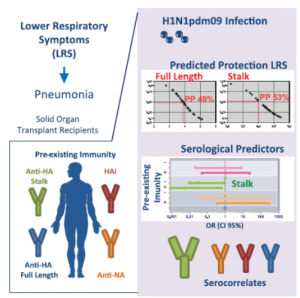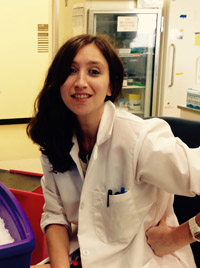Instructor
teresa.aydillo-gomez@mssm.edu
Research Interests
I am Faculty (Instructor) at the Dep. Microbiology, Global Health and Emerging Pathogens Institute, ISMMS. My main research interest is the understanding of mechanisms of regulation of the immune system, mainly those related to protective immune responses after infection with viruses to elucidate immunological signatures that can be translated to vaccine development and new therapeutic approaches. These mechanisms include antibody protection and antibody-mediated function, cross-reactive antibodies and the role of pre-existing humoral immunity and immunodominance on B cell responses. On the other hand, eliciting cell-mediated immune responses in addition to antibodies should also enhance prevention and transmission of infectious diseases; and would reinforce both new and boosted acquired immunity opening new questions about the relationship between T and B cell relat ionship, for example Th1/Th2 polarization. I apply a global and multidisciplinary approach, from clinical research to characterization of immune responses after infection, and systems biology in two different but complementary research topics: influenza and SARS-CoV-2.
ionship, for example Th1/Th2 polarization. I apply a global and multidisciplinary approach, from clinical research to characterization of immune responses after infection, and systems biology in two different but complementary research topics: influenza and SARS-CoV-2.
Notable Publications
Aydillo T, et al. (12/1). 2021. Antibody Immunological Imprinting on COVID-19 Patients. medRxiv. doi: https://doi.org/10.1101/2020.10.14.20212662.
Nachbagauer R, Feser J, Naficy A, Bernstein D, Guptill J, Walter E, Berlanda-Scorza F, Stadlbauer D, Wilson P, Aydillo T, et al. (31/10). 2021. A chimeric hemagglutinin-based universal influenza virus vaccine approach induces broad and long-lasting immunity in a randomized, placebo-controlled phase I trial. Nat Med. Vol 27, January 2021, 106–114.
Aydillo T, et al. (17/1). 2020. Shedding of Viable SARS-CoV-2 after Immunosuppressive Therapy for Cancer. New England Journal of Medicine. 383:2586-2588.
Aydillo T, et al. (16/1). 2020. Pre-existing Hemagglutinin Stalk Antibodies Correlate with Protection of Lower Respiratory Symptoms in Flu-Infected Transplant Patients. Cell Reports Medicine. Volume 1, Issue 8, 17 November 2020, 100130.
Aydillo T, Ayllon J, Pavlisin A, Martinez-Romero C, Tripathi S, Mena I, Moreira-Soto A, Vicente-Santos A, Corrales-Aguilar E, Schwemmle M and García-Sastre A. Specific mutations in the PB2 protein of influenza A virus compensate for the lack of efficient IFN antagonism of the NS1 protein of bat influenza A-like viruses. J Virol. 2018. Mar 14;92(7). pii: e02021-17. doi: 10.1128/JVI.02021-17.

